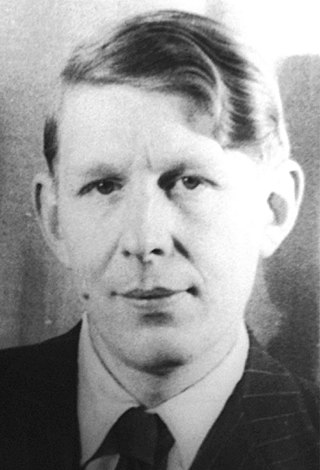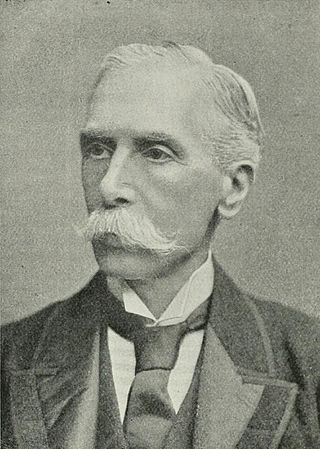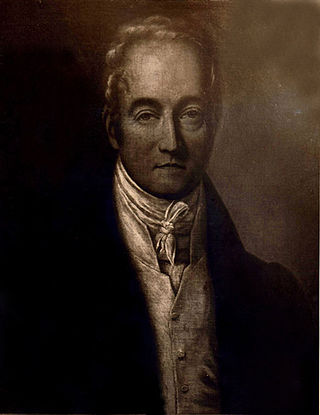Reception
The Ordeal of Richard Feverel was first published in 1859 by Chapman & Hall in three volumes. The book received generally respectful reviews, though critics were often puzzled by Meredith's rather dense style, and did not all agree in their reading of the book's message, or their estimation of the author's success in presenting it. [4] The book's commercial success, as with all Victorian novels, depended in large measure on the number of copies bought by the various commercial lending libraries, but the largest of them all, Mudie's, took fright at the sexual frankness of the novel and refused to stock it, casting a taint of unrespectability over Meredith's name that lasted for many years. "I am tabooed from all decent drawing-room tables", Meredith wrote, but he refused to tone down the offending passages. [5] Chapman & Hall left the book unreprinted for nearly twenty years, and when, in 1878, Meredith produced a revised (but not bowdlerized) version, it was published by another firm, Kegan Paul. From the mid-1880s onward Meredith's reputation as a serious novelist reached such a level as to ensure a stream of reprints. [6] For the past hundred years Richard Feverel, with all its faults, has been considered one of Meredith's finest works, its status as a forerunner of many later developments in the novel being widely recognized. Arnold Bennett wrote, "In Richard Feverel, what a loosening of the bonds! What a renaissance!…It was the announcer of a sort of dawn", while acknowledging that "It is a weak book, full of episodic power and overloaded with wit." [7] J. B. Priestley wrote that "So far as English fiction is concerned...there can be no doubt that the modern novel began with the publication of The Ordeal of Richard Feverel." [8] Virginia Woolf's assessment was that:
He makes no attempt to preserve the sober reality of Trollope and Jane Austen; he has destroyed all the usual staircases by which we have learnt to climb. And what is done so deliberately is done with a purpose. This defiance of the ordinary, these airs and graces, the formality of the dialogue with its Sirs and Madams are all there to create an atmosphere that is unlike that of daily life, to prepare the way for a new and an original sense of the human scene.
And again:
The book is cracked through and through with those fissures which come when the author seems to be of twenty minds at the same time. Yet it succeeds in holding miraculously together, not certainly by the depths and originality of its character drawing but by the vigour of its intellectual power and by its lyrical intensity. [9]

Wystan Hugh Auden was a British-American poet. Auden's poetry was noted for its stylistic and technical achievement, its engagement with politics, morals, love, and religion, and its variety in tone, form, and content. Some of his best known poems are about love, such as "Funeral Blues"; on political and social themes, such as "September 1, 1939" and "The Shield of Achilles"; on cultural and psychological themes, such as The Age of Anxiety; and on religious themes such as "For the Time Being" and "Horae Canonicae".

Henry Graham Greene was an English writer and journalist regarded by many as one of the leading English novelists of the 20th century. Combining literary acclaim with widespread popularity, Greene acquired a reputation early in his lifetime as a major writer, both of serious Catholic novels, and of thrillers. He was shortlisted for the Nobel Prize in Literature several times. Through 67 years of writing, which included over 25 novels, he explored the conflicting moral and political issues of the modern world. He was awarded the 1968 Shakespeare Prize and the 1981 Jerusalem Prize.

Matthew Arnold was an English poet and cultural critic who worked as an inspector of schools. He was the son of Thomas Arnold, the celebrated headmaster of Rugby School, and brother to both Tom Arnold, literary professor, and William Delafield Arnold, novelist and colonial administrator. Matthew Arnold has been characterised as a sage writer, a type of writer who chastises and instructs the reader on contemporary social issues. He was also an inspector of schools for thirty-five years, and supported the concept of state-regulated secondary education.
This article contains information about the literary events and publications of 1859.

George Meredith was an English novelist and poet of the Victorian era. At first his focus was poetry, influenced by John Keats among others, but he gradually established a reputation as a novelist. The Ordeal of Richard Feverel (1859) briefly scandalised Victorian literary circles. Of his later novels, the most enduring is The Egoist (1879), though in his lifetime his greatest success was Diana of the Crossways (1885). His novels were innovative in their attention to characters' psychology, and also took a close interest in social change. His style, in both poetry and prose, was noted for its syntactic complexity; Oscar Wilde likened it to "chaos illumined by brilliant flashes of lightning". He was an encourager of other novelists, as well as an influence on them; among those to benefit were Robert Louis Stevenson and George Gissing. He was nominated for the Nobel Prize in Literature seven times.
British literature is literature from the United Kingdom of Great Britain and Northern Ireland, the Isle of Man, and the Channel Islands. This article covers British literature in the English language. Anglo-Saxon literature is included, and there is some discussion of Latin and Anglo-Norman literature, where literature in these languages relate to the early development of the English language and literature. There is also some brief discussion of major figures who wrote in Scots, but the main discussion is in the various Scottish literature articles.

Biblical criticism is the use of critical analysis to understand and explain the Bible. During the eighteenth century, when it began as historical-biblical criticism, it was based on two distinguishing characteristics: (1) the scientific concern to avoid dogma and bias by applying a neutral, non-sectarian, reason-based judgment to the study of the Bible, and (2) the belief that the reconstruction of the historical events behind the texts, as well as the history of how the texts themselves developed, would lead to a correct understanding of the Bible. This sets it apart from earlier, pre-critical methods; from the anti-critical methods of those who oppose criticism-based study; from later post-critical orientation, and from the many different types of criticism which biblical criticism transformed into in the late twentieth and early twenty-first centuries.

Alfred Austin was an English poet who was appointed Poet Laureate in 1896, after an interval following the death of Tennyson, when the other candidates had either caused controversy or refused the honour. It was claimed that he was being rewarded for his support for the Conservative leader Lord Salisbury in the General Election of 1895. Austin's poems are little-remembered today, his most popular work being prose idylls celebrating nature. Wilfred Scawen Blunt wrote of him, “He is an acute and ready reasoner, and is well read in theology and science. It is strange his poetry should be such poor stuff, and stranger still that he should imagine it immortal.”

General Sir Howard Douglas, 3rd Baronet, was a British Army officer born in Gosport, England, the younger son of Admiral Sir Charles Douglas, and a descendant of the Earls of Morton. He was an English army general, author, colonial administrator and Member of Parliament for Liverpool.
Dr. Richard Austin Freeman was a British writer of detective stories, mostly featuring the medico-legal forensic investigator Dr. Thorndyke. He invented the inverted detective story. This invention has been described as Freeman's most noticeable contribution to detective fiction. Freeman used some of his early experiences as a colonial surgeon in his novels. Many of the Dr. Thorndyke stories involve genuine, but sometimes arcane, points of scientific knowledge, from areas such as tropical medicine, metallurgy and toxicology.

Ada Esther Leverson was a British writer who is known for her friendship with Oscar Wilde and for her work as a witty novelist of the fin-de-siècle.
Edward Mendelson is a professor of English and Comparative Literature and the Lionel Trilling Professor in the Humanities at Columbia University. He is the literary executor of the Estate of W. H. Auden and the author or editor of several books about Auden's work, including Early Auden (1981) and Later Auden (1999). He is also the author of The Things That Matter: What Seven Classic Novels Have to Say About the Stages of Life (2006), about nineteenth- and twentieth-century novels, and Moral Agents: Eight Twentieth-Century American Writers (2015).
The academic discipline of women's writing is a discrete area of literary studies which is based on the notion that the experience of women, historically, has been shaped by their sex, and so women writers by definition are a group worthy of separate study: "Their texts emerge from and intervene in conditions usually very different from those which produced most writing by men." It is not a question of the subject matter or political stance of a particular author, but of her sex, i.e. her position as a woman within the literary world.

The sociology of literature is a subfield of the sociology of culture. It studies the social production of literature and its social implications. A notable example is Pierre Bourdieu's 1992 Les Règles de L'Art: Genèse et Structure du Champ Littéraire, translated by Susan Emanuel as Rules of Art: Genesis and Structure of the Literary Field (1996).

Literature is any collection of written work, but it is also used more narrowly for writings specifically considered to be an art form, especially prose fiction, drama, and poetry. In recent centuries, the definition has expanded to include oral literature, much of which has been transcribed. Literature is a method of recording, preserving, and transmitting knowledge and entertainment, and can also have a social, psychological, spiritual, or political role.
English literature is literature written in the English language from United Kingdom, its crown dependencies, the Republic of Ireland, the United States, and the countries of the former British Empire. The English language has developed over the course of more than 1,400 years. The earliest forms of English, a set of Anglo-Frisian dialects brought to Great Britain by Anglo-Saxon invaders in the fifth century, are called Old English. Beowulf is the most famous work in Old English, and has achieved national epic status in England, despite being set in Scandinavia. However, following the Norman conquest of England in 1066, the written form of the Anglo-Saxon language became less common. Under the influence of the new aristocracy, French became the standard language of courts, parliament, and polite society. The English spoken after the Normans came is known as Middle English. This form of English lasted until the 1470s, when the Chancery Standard, a London-based form of English, became widespread. Geoffrey Chaucer, author of The Canterbury Tales, was a significant figure in the development of the legitimacy of vernacular Middle English at a time when the dominant literary languages in England were still French and Latin. The invention of the printing press by Johannes Gutenberg in 1439 also helped to standardise the language, as did the King James Bible (1611), and the Great Vowel Shift.

A novel is a relatively long work of narrative fiction, typically written in prose and published as a book. The present English word for a long work of prose fiction derives from the Italian: novella for "new", "news", or "short story of something new", itself from the Latin: novella, a singular noun use of the neuter plural of novellus, diminutive of novus, meaning "new". Some novelists, including Nathaniel Hawthorne, Herman Melville, Ann Radcliffe, John Cowper Powys, preferred the term "romance" to describe their novels.
Mohammad Shaheen has been a professor of English literature at the University of Jordan in Amman, Jordan since 1985. Shaheen holds a PhD degree in English literature from Cambridge University. He is the author of many books, including E.M. Forster and the Politics of Imperialism.

Kenneth Womack is an American writer, literary critic, public speaker, and music historian, particularly focusing on the cultural influence of the Beatles. He is the author of the bestselling Solid State: The Story of Abbey Road and the End of the Beatles and John Lennon, 1980: The Last Days in the Life.
The Ordeal of Richard Feverel is a 1964 British period television series which originally aired on BBC 2 in four episodes from 12 September to 3 October 1964. It is an adaptation of the 1859 novel of the same title by George Meredith.











